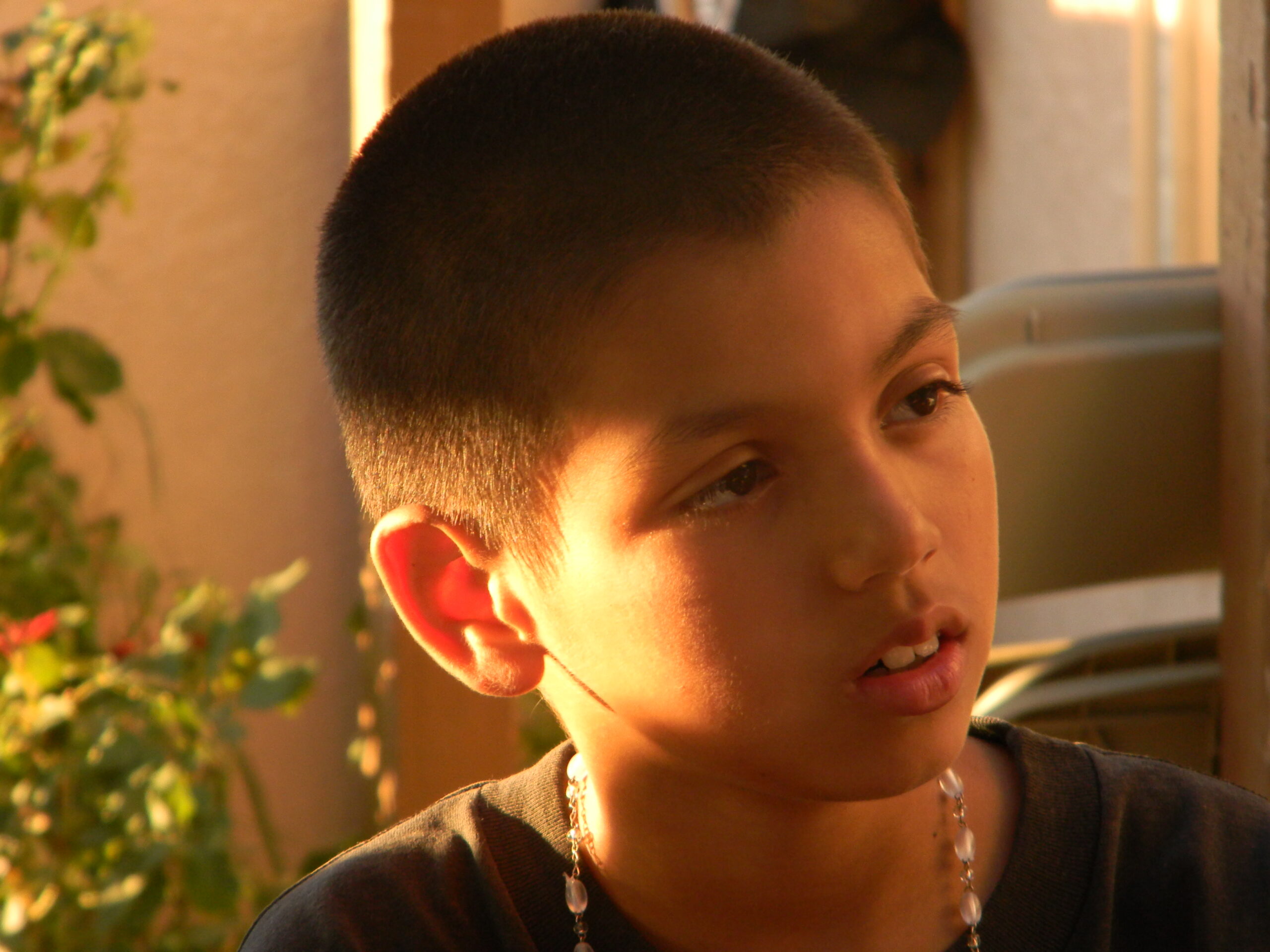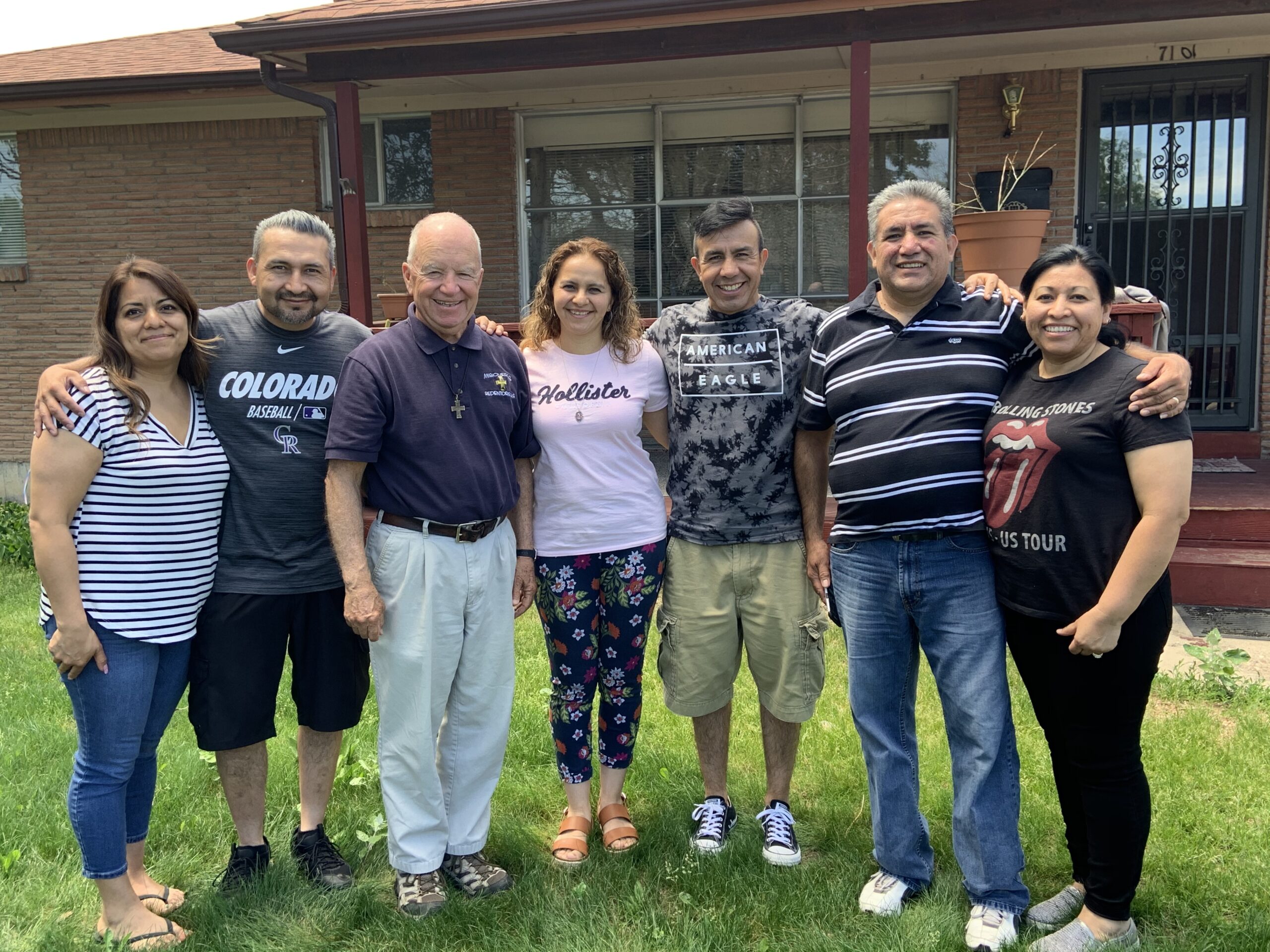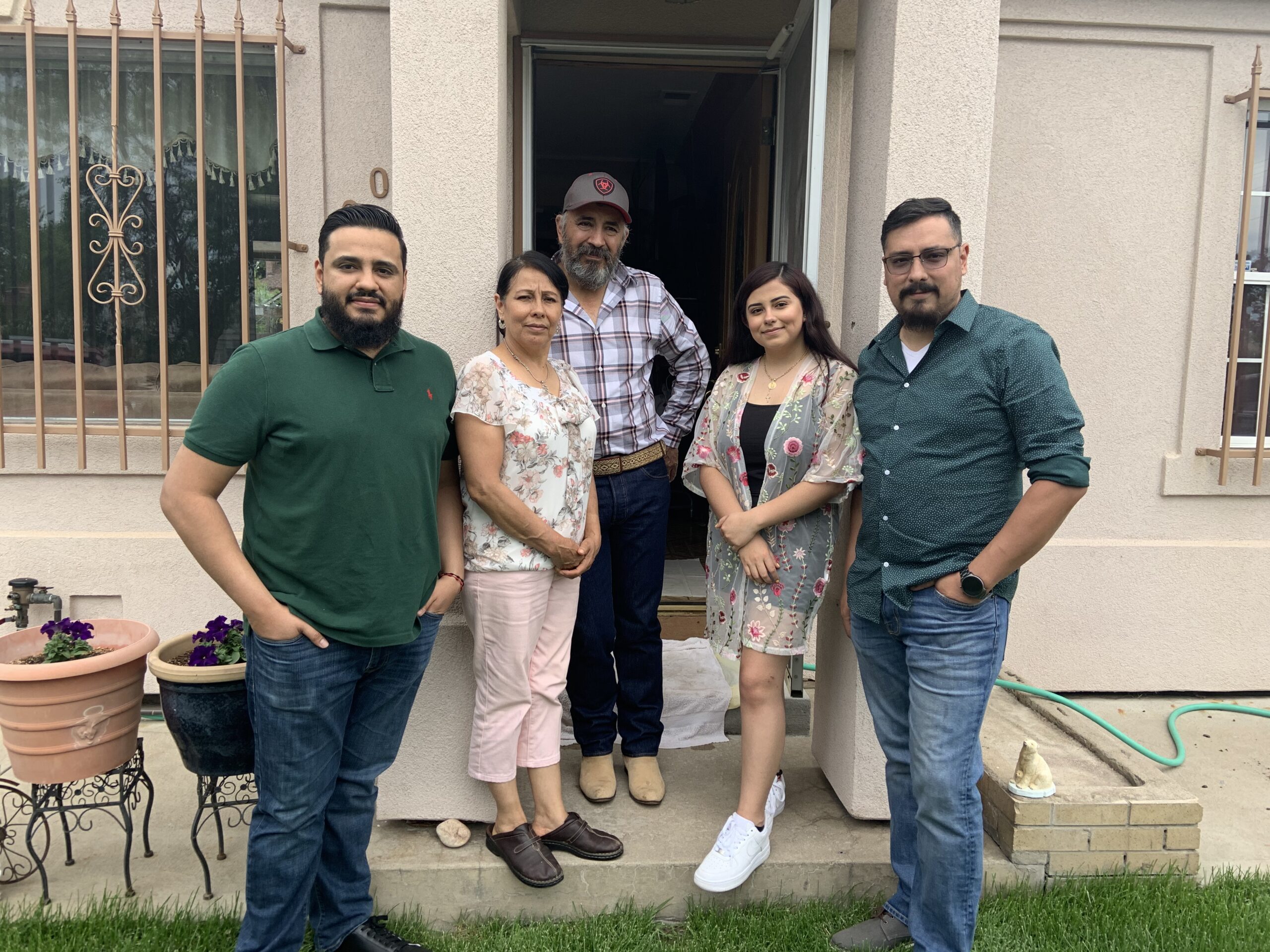6. Lent: New methods – Métodos Nuevos
Padres enseñando a sus hijos
“Los padres son los primeros y principales educadores de sus hijos”. (GE, 3)
Hace un mes, este blog llamó la atención sobre el papel de los padres como “son los principales educadores de sus hijos”. En el bautismo, los padres reconocen esta responsabilidad y se comprometen a formar a sus hijos en la fe. San Lucas era una comunidad misionera en Bruce, Mississippi. Fui allí para establecer un programa sacramental que no tenía catequistas para preparar a los niños para los sacramentos de la Eucaristía o la Confirmación. Había quince candidatos para la Primera Comunión de distintas edades mayores de siete años. Era una comunidad casi en su totalidad hispana.
La comunidad católica de esa parte de Mississippi es pequeña y está dispersa. Mucha gente vive a quince millas o más de la ubicación central de la parroquia. La comunidad no se prestó a un modelo institucional de programas de educación religiosa. La comunidad era transitoria ya que los trabajadores agrícolas a menudo se movían en busca de un empleo más estable y ICE creó una terrible inestabilidad en la comunidad de inmigrantes. Un programa de larga duración no era práctico para la comunidad, así que les prometí a los padres que sus hijos podrían estar listos para los sacramentos en el tiempo disponible para nosotros. Les pedí a los padres que me informaran si tenían que mudarse antes de completar la preparación para responder a sus necesidades.
Durante dos domingos, recordé a la gente que los padres y padrinos son los primeros educadores de sus hijos en los caminos de la fe. El segundo domingo, los padres inscribieron a sus hijos para la preparación sacramental y les dije que les ayudaría a enseñar a sus hijos. Les pedí a ellos y a los padrinos de los niños que fueran los catequistas de sus hijos. Los padres recibieron un folleto preparado con lecciones muy básicas escritas en inglés y español para que ellos prepararan a los niños. Un domingo de cada mes durante los siguientes tres meses hubo una clase para los padres después de la Misa. Fue sólo de media hora con los padres y los niños juntos. Había tarea para los niños. Se les dio a los padres lecturas de los evangelios para contar la historia de Jesús a los niños para que las leyeran con los niños durante el mes. Los padres necesitaban contar su propia historia de crecer en la fe. Se animaron varias oraciones comunes para los niños.
Muchos de los padres declararon que no sabían lo suficiente sobre la fe para ser catequistas, pero en el proceso descubrieron un nuevo interés en aprender ellos mismos la fe católica. Muchos feligreses que practicaban el catolicismo en las prácticas devocionales de sus familias tenían una formación catequética mínima. Sin embargo, las familias tomaron en serio la preparación y cumplieron la promesa que hicieron en el bautismo de sus hijos. La conciencia de las familias reflejó el mensaje de “si se puede” predicado en nuestras misas.
La sorpresa fue que había padres, participando mínimamente en la vida católica, que se convirtieron en algunos de los mejores educadores de sus hijos en la fe. Mañana contaré una historia inusual de una madre que prepara a sus hijos para la Primera Comunión.
Sigo buscando ayuda
Ayúdame a preparar un programa sacramental para niños con necesidades especiales y tiempo limitado de preparación.
Pregunta de hoy para la reflexión: ¿Qué piensa de padres preparando a sus hijos por la Primera Comunión?
Por favor comparte conmigo tus recuerdos. Escribir a: [email protected]
Parents teaching their children
“Parents must be acknowledged as the first and foremost educators of their children.” (GE, 3)
A month ago, this blog called attention to the role of parents as “first and foremost educators of their children.” At baptism, the parents recognize this responsibility and commit themself to forming their children in ways of faith. St. Luke was a mission community in Bruce, Mississippi. I went there to establish a sacramental program that had no catechists to prepare children for the sacraments of Eucharist or Confirmation. There were fifteen candidates for First Communion of varying ages older than seven years old. It was a community almost entirely a Hispanic community.
The Catholic community of that part of Mississippi is small and scattered. Many people live fifteen miles or further from the central location of the parish. The community did not lend itself to an institutional model of religious education programs. The community was transient as workers in agriculture often moved to seek more stable employment and ICE created terrible instability in the immigrant community. A program of long duration was not practical for the community, so I promised parents that their children could be ready for the sacraments in the time available to us. I asked parents to inform me if they had to move before completion of preparation to respond to their needs.
For two Sundays, I reminded people that the parents and godparents are the first educators of their children in ways of faith. On the second Sunday, parents registered their children for sacramental preparation, and I told the parents that I would help them teach their children. I asked them and the godparents of the children to be the catechists for their children. The parents received a booklet prepared with very basic lessons written in English and Spanish for them to prepare the children. One Sunday each month for the next three months there was a class for the parents after Mass. It was only for one half hour with the parents and children together. There was homework for the children. Readings of the gospels to tell the story of Jesus to the children were given to parents to read with the children during the month. Parent needed to tell their own story of growing up in the faith. Several common prayers were encouraged for the children.
Many of the parents declared that they did not know enough about the faith to be catechists, but in the process discovered a new interest in learning the Catholic faith themselves. Many parishioners who practiced Catholicism in devotional practices of their families had minimal catechetical formation. Yet, families took the preparation to heart and fulfilled the promise that they made at the baptism of their children. The conscientiousness of the families reflected the “si se puede” (yes you can) message preached at our Masses.
The surprise for me was seeing parents who had been only minimally participating in Catholic life who became some of the best educators of their children in the faith. Tomorrow, I will tell an unusual story of a parent preparing her children for their First Communion.
Still looking for help
Help me prepare a sacramental program for children with special needs and limited time for preparation.
Today’s question for reflection: What do you think of having parents preparing their children for First Communion?
Please share with me your memories. Write to: [email protected]
Oh Jesús, tú nos llamas: “Síganme”. Bendice, Señor, a todos los que acogen tu llamado. Puede que el camino no sea fácil, pero tenemos la confianza de que todo es posible si caminamos contigo. Que este viaje nos abra los ojos a las maravillas de tu amor por nosotros. Oramos por toda tu gente, por todos los creyentes e incrédulos, por los líderes y seguidores. Oramos por la sanación, el perdón, la compasión, la justicia y la paz. Oramos para que, al seguirte, nosotros también podamos ser pescadores de hombres. Bendícenos en nuestro viaje.
O Jesus, you call us, “Come after me.” Bless, O Lord, all who welcome your call. The path may not be easy, but we have confidence that all things are possible if we walk with you. May this journey, open our eyes to the wonders of your love for us. We pray for all your people, for all believers and unbelievers, for leaders and followers. We pray for healing, for forgiveness, for compassion, for justice, for peace. We pray that as we follow you, we too can be fishers of men. Bless us on our journey.






Vince McAndrew
February 22, 2021 @ 12:25 pm
Hi again, Mike. Will give this reponse for a test.
As we talked about, I applaud your reaching out to parents (or parental surrogates) to think through their own understanding of the First Communion and other sacraments. Continuing to make real any ritual (sacrament) is an important ongoing step in one’s continuing on his or her spiritual path.